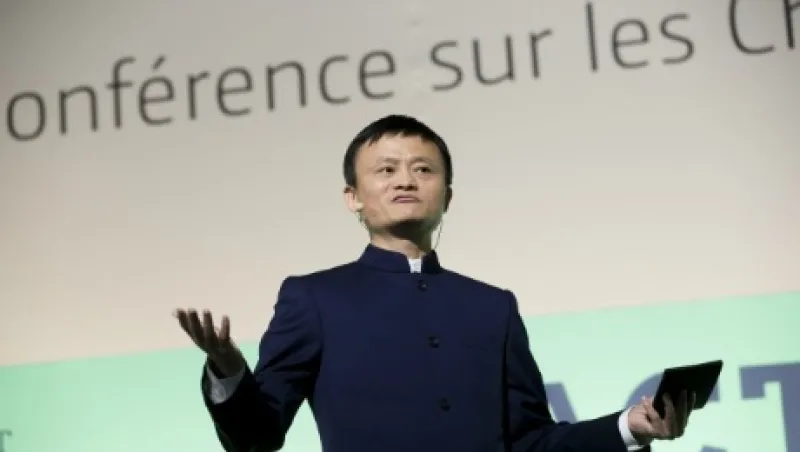Climate change skeptics argue that the earth’s climate is always changing. But talking about climate change in isolation is nonsense. It is one by-product of a wide range of natural and man-made activities — activities that transform our planet, our society and our economy. Climate change affects every aspect of our lives, from buying a designer shirt in Manhattan to a Big Mac in Shanghai. Although the growth in factories — which create everything from fine Swiss watches (whose movement, case and strap often start life in China) to Apple and Samsung smartphones — has helped lift workers out of poverty, the pollution that those factories spew contributes to global warming.
Climate change is the biggest security risk to the survival of human society, the global economy and perhaps our species. Tackling it is the role of the annual Conference of the Parties, also known as COP. Despite terrorist attacks in Paris on November 13, this year’s December talks went smoothly. All credit goes to the French for running a well-managed event, hosting an array of world leaders at COP21 and gaining what’s been called a historic climate accord. But what does it achieve? And what needs to be done?
Our planet is a closed system with finite resources and a finite capacity to absorb pollution. Whether you believe climate change is man-made or not, most pollution is — and it is increasing. Our planet can absorb only limited amounts of pollution. Previous generations left the planet a better place, but we pump out air pollution at ever-higher rates, changing the composition of our atmosphere and causing significant increases in respiratory diseases and cancer rates, with worse to come if we don’t act now. As a longtime resident of Hong Kong, I’ve seen the devastating effects of rising pollution levels firsthand.
How can we mitigate the effects of growing pollution? And what will be the role of the Paris climate accord, which has almost no teeth?
Although there is little in terms of mandatory deliverables in the Paris agreement, it does record accepted facts and international commitments. Previous climate treaties, like the Kyoto Protocol, may have had mandatory deliverables, but few if any countries have met their commitments under those agreements.
The most powerful influence on current and future climate mitigation and practice is the sleeping giant: the consumer. When people wake up in the morning frightened that the West Antarctic Ice Sheet could detach from the continental shelf and cause an abrupt sea level change and all the geophysical mayhem that could accompany such an event, they might then make purchasing decisions calculated to alter commercial, industrial, municipal, national and international pollution practices and management.
The Paris agreement is a timely reminder that there are dangers out there and that we need to act now to avert the worst of the consequences. To contain and manage these risks, a balance needs to be found to reduce and mitigate pollution and manage resource use to avoid extinction-level changes while also ensuring continued economic and social development. This is the conundrum the Paris agreement seeks to address.
In brief, the issues are:
• Advanced economies became developed by unrestrained use of resources and unrestricted pollution. Yet now the developed world is saying to emerging economies: “Don’t do as we did.”
• Emerging economies continue to develop using the same model. Economic development that relies on fossil fuels as the main energy source means that the right to develop equals the right to pollute.
• Emerging economies won’t accept developed economies saying, “Don’t pollute,” because to do so means that younger economies can’t develop, and the lack of economic development causes social discontent and increased security risks.
• To ensure economic growth and reduce global economic, social and environmental risks, we urgently need to find a creative resolution that transcends borders.
Treaties or laws by themselves can’t make anyone to do anything. Enforcement of laws, not the mere existence of laws, can lead to behavioral changes. But more than that, popular trends tend to lead to society-level behavioral changes. In the climate change case, at some point global consumers may realize that we may be a major cause of the problem, and that as consumers we have the power to change our behavior to reduce the world’s pollution.
Some climate experts speak of zero growth and other doomsday-sounding solutions. I believe we can sustain our levels of economic growth and continue to develop without sacrificing our comfort, but we do need to change our patterns of waste and consumption. We’re profligate in our consumption and in our waste. Much that is dumped at sea or in landfills can be reused or recycled.
What other steps can be taken? The best forms of land-based carbon capture are the broad-leafed tropical hardwood rain forests. But we’re busy cutting them down, turning them into farms and palm oil plantations.
New — and not so new — pollution-reducing technologies exist. Electric-powered scooters, cars, buses and trucks can make a difference, especially in urban areas. Electricity centralizes pollution at power plants where carbon-capture technology can be deployed effectively. Tesla is rapidly becoming a preferred luxury car brand in Hong Kong, while fusion power, in which Germany has made a big investment, could be the clean energy of the future.
The technology exists to capture pollution at the source from factories, large ships and power stations. The question is how to make it cost effective. One solution could be to charge a pollution premium — a levy to be paid by polluters that don’t implement emissions capture technology. This penalty could also be imposed on imports from noncompliant factories abroad. Ironically, pollution from power generation and manufacturing consists of valuable materials, such as sulphur, mercury, heavy metals and the like, that are hazardous to our health but essential in manufacturing and can be processed and sold at a profit.
But what about the Paris agreement? In terms of commitments, the outcome is modest. It’s one of a series of periodic wake-up calls. But in that sense it is a clarion cry and timely. Now it’s up to the world to act on the alarm sounded in the City of Light.
Julian Stargardt is CEO of Hong Kong–based Asia Pacific Strategic Consulting and a senior research associate with the University of Sussex’ Centre for World Environmental History.






